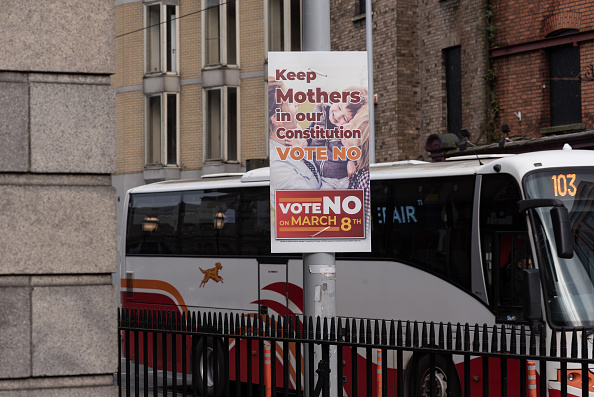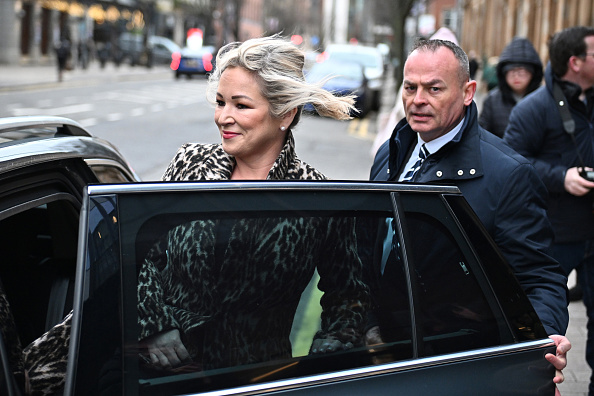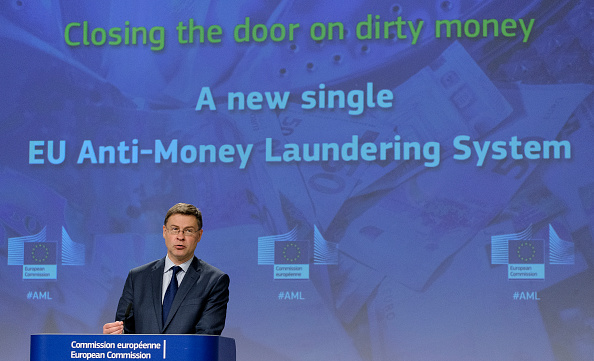A group of former Irish soldiers have been training “rogue” Libyan warlord Khalifa Haftar’s troops over the past year – in apparent violation of a UN arms embargo and as a European Union mission operates in African waters, according to Irish media and military experts.
Ireland, perhaps ironically, has also been helping police regarding the same restrictions. Its LÉ William Butler Yeats ship has been patrolling North African coastal waters in a bid to prevent illicit weapons transfers – under the EU’s mission “Operation Irini”.
Photographs of the former soldiers, who in Libya wore uniforms sporting Irish flags and Army Rangers Wing patches, wound up on Facebook, piquing the interest of journalists.
Another of the former soldiers aroused official attention during a visit home when he was allegedly overheard talking about his work in Libya while in a pub.
From the start of 2023, Irish Training Solutions, based in the Eastern Irish county of Offaly, had been training troops in Benghazi loyal to Haftar and opposing Libya’s UN-recognised Government in Tripoli, the Irish Times reported following an investigation.
While Ireland is “neutral” regarding foreign policy, one of its former naval vessels has also ended up with forces loyal to Haftar, according to recently retried Irish Navy Officer John Crowley, who left the service after 31 years.
Ireland sold its LÉ Aisling offshore patrol vessel to the Dutch company Dick van de Kamp for €110,000 in 2017.
The next year, the Dutch company solid it for $525,000 to a UAE-based business, which immediately sold it to a Libyan outfit for $1.5 million.
Now called Al Karama (Dignity), the vessel now boasts cannon similar to the ones it had when it was owned by Ireland and is operated by forces loyal to the warlord, said Crowley.
Another former Irish vessel, LÉ Emer, was sold at auction in 2013 for €320,000 and is also operating in Africa, now in the Nigerian navy under the name NNS Prosperity.
Irish defence forces’ personnel remain subject to military law for six months after leaving the services.
Some former soldiers went to work for Irish Training Solutions within that period but it is unlikely, experts say, that they will face either court martial or civilian charges. The clause is chiefly intended to enable such individuals to be still charged in military courts for any crimes they committed while on active duty.
The former Irish soldiers were “teaching snipers” and “had specialised snipers out to train them, we had mortars, reconnaissance, medical, machine gun support”, one of the former soldiers told journalists.
One of the trainers had not yet been discharged from the Irish armed forces and was still a serving soldier during his time in Libya.
A 2011 UN arms embargo forbade technical assistance and military training to stop the violent break-up of the country after the toppling of former leader Muammar Gadafy.
As well as violating the UN arms embargo, providing military training “is banned under EU restrictions too”, noted the Irish Defence Forces Officers’ Club, an organisation of former Irish army personnel.
Irish Training Solutions, whose directors Daniel Cluskey, Darren Kelly and Nigel McCormack are all ex-Irish army professionals, allegedly paid former soldiers €300 a day to train the soldiers in Libya for nine months, according to a copy of their contract.
What appear to be its company accounts, available online, Irish Training Solutions made a profit of €738,088 in the 2023 financial year and had slightly over €1 million in “cash and cash equivalents” in March 2023.
Ireland maintains a Defence Force which, on January 31, had 7,504 service members, almost exclusively deployed on UN peacekeeping operations. Defence planners said such a staffing level, one of Ireland’s lowest for years, was 2,000 short of what the nation required to adequately defend itself.
“Very concerning that Irish soldiers would rather serve in Libya than at home in Ireland,” responded one Irish commentator on X.





